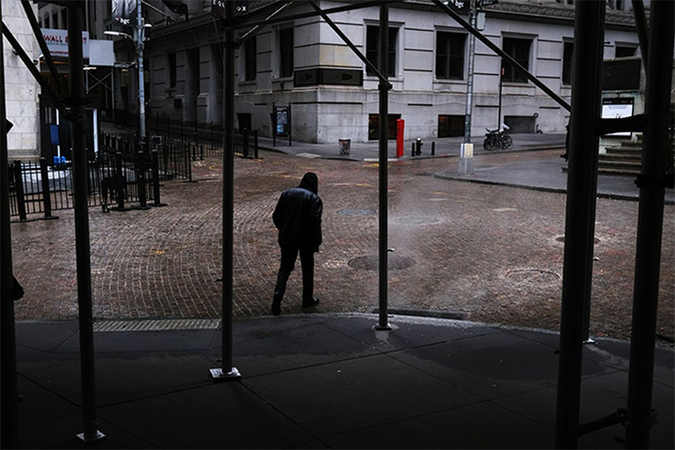
The U.S. is projected to see the worst reversal of fortune this year in a ranking of global economic misery, underscoring just how much havoc the pandemic has wrought.
America fell 25 spots, from the No. 50 spot to No. 25, on Bloomberg's Misery Index, which tallies inflation and unemployment outlooks for 60 economies. The drop comes as President Donald Trump fights for re-election while millions of Americans remain unemployed. Only Iceland, Israel, and Panama were even close to that level of deterioration in the annual rankings.
Almost all of the economies surveyed are projected to be more miserable this year amid covid-19, with analysts expecting increased joblessness and tepid growth.
Venezuela, Argentina, South Africa, and Turkey held on to their unenviable rankings from 2019 as the world's four most miserable economies, with Venezuela keeping status as the world's worse for a sixth straight year. The troubled South American country continues to suffer from soaring prices, with Bloomberg's Cafe Con Leche Index estimating a current inflation rate of 4,043%.
Thailand claimed the title of the "least miserable" economy, though the government's unique way of tallying unemployment makes it less noteworthy than Taiwan's two-spot improvement to No. 6 or Singapore's bump to No. 2 on that scale.
The Bloomberg Misery Index, now in its sixth year, relies on the age-old concept that low inflation and unemployment show how good a country's residents feel. This year's scores are based on Bloomberg surveys of economists' estimates for 2020 price growth and joblessness in each economy and compares those values to last year's actual data. The index includes countries for which Bloomberg has sufficient economic forecasts.
Among economies seeing improvements in their Misery Index rankings for 2020:
- Luxembourg's ranking was most improved this year versus last, moving more favorably to No. 47 from No. 30.
- In China, where the coronavirus first took hold, 2020 unemployment and inflation data are projected to be modestly impacted, with the world's second-biggest economy improving seven spots to No. 44.
- Germany's overall misery score didn't change much from its actual performance in 2019 -- 6.7 versus 6.4 last year -- but the European engine improved by 10 spots as it's seen to be less vulnerable than other economies battling the coronavirus effects on the labor market.
For some, whose misery scores are projected to be lower in 2020 than they were in 2019, including Turkey, even the good news is bad news. The lower misery scores are largely due to weaker demand that's driven inflation expectations lower.


